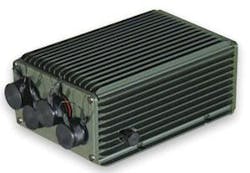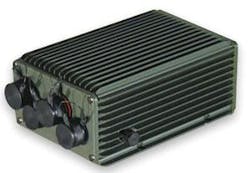U.S. Army selects Quantum3D Thermite tactical visual computer for Future Force Warrior
Officers at the U.S. Army Natick Soldier Research Development and Engineering Command in Natick, Mass., sought an open-architecture, commercial off-the-shelf (COTS) computing system to support the Army’s Future Force Warrior (FFW) Increment 2.
They found such a system—the Thermite Tactical Visual Computer (TVC)—at Quantum3D Inc., a provider of commercial off-the-shelf, open-architecture, real-time visual computing solutions in San Jose, Calif.
“One of the main reasons we built Thermite was to address the growing need for COTS, open-architecture, man-wearable deployed visual computing applications,” says Ross Q. Smith, Quantum3D co-founder and president. “FFW is one of the most important man-wearable systems in development today.”
Thermite TVC-equipped FFW systems are employed in field trials designed to assess the FFW system effectiveness and to provide feedback for FFW ongoing spiral development. Thermite TVC-equipped FFW systems were also employed in trials in a U.S. Army On-The-Move exercise at Fort Dix, N.J., and widely tested in the Air Assault Expeditionary Force (AAEF) exercises at Fort Benning, Ga., in 2007.
The Thermite TVC family of computer systems from Quantum3D is designed to support graphics, video, and compute-intensive, network-centric command-and-control (C2) and command, control, communications, computers, intelligence, surveillance, and reconnaissance (C4ISR) applications in extended environments. The Thermite TVC line includes models optimized for man-wearable and vehicle-based applications.
For FFW, the Thermite TVC-2.0 man-wearable computer serves as the soldier system’s central communications and processing hub. It provides the soldier with navigation, C4ISR, IP Radio-based communications, live video display, and other mission-critical information via the soldier’s head-mounted-display and 2-way audio subsystem. As a result, the soldier and associated unit gain enhanced situational awareness, collective engagement capabilities, and potentially improved mission effectiveness. For additional information, visit Quantum3D online at www.quantum3d.com.

